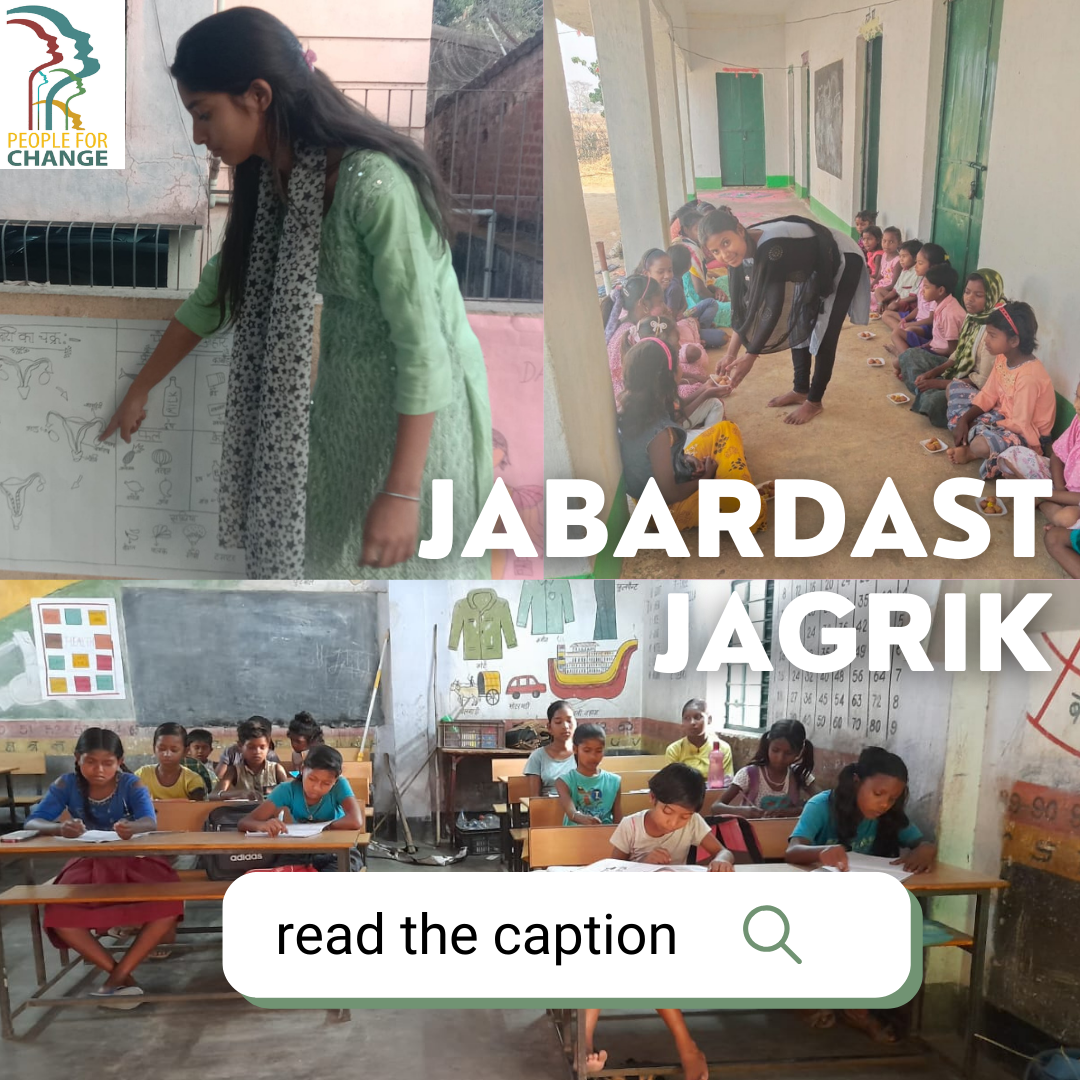
The pandemic posed several challenges, which included an expected rise in dropouts, learning losses, and an increase in the digital divide. Poor rural girls were affected the most. Girls who receive an education are less likely to marry young and more likely to lead healthy, productive lives. The occupation of a majority of tribal people is agriculture, whose productivity is generally low; therefore, most of the tribal girls contribute to the family income by participating in the family occupation and by also engaging in domestic chores. People for Change, in collaboration with ComMutiny, The Youth Collective, has organised a programme named the "Peer Tutors Initiative" (Jabardast Jagrik) in which our ten young fellows, Peer Tutors, are teaching girls whose studies have been affected by COVID-19. These are underprivileged children, and due to COVID-19, affected them the most, as they did not have any medium through which they could continue their studies. So, in this project, peer tutors have mobilised girls from their locality and are teaching 60 girls. They divide girls into two groups where they teach math, language (which includes Hindi, History, Civics, General Knowledge, Science, and Geography), and English. A lot of fun activities like art and craft, drawing, reading aloud, storytelling, and skits are also incorporated to make learning fun and engaging.
The impact of the running centre is such that some dropped-out girls in the centre are willing to join the school, so our fellow took a step and reconnected them with the school and had a conversation with the school's administration. The girls are happy to join school and begin studying again.